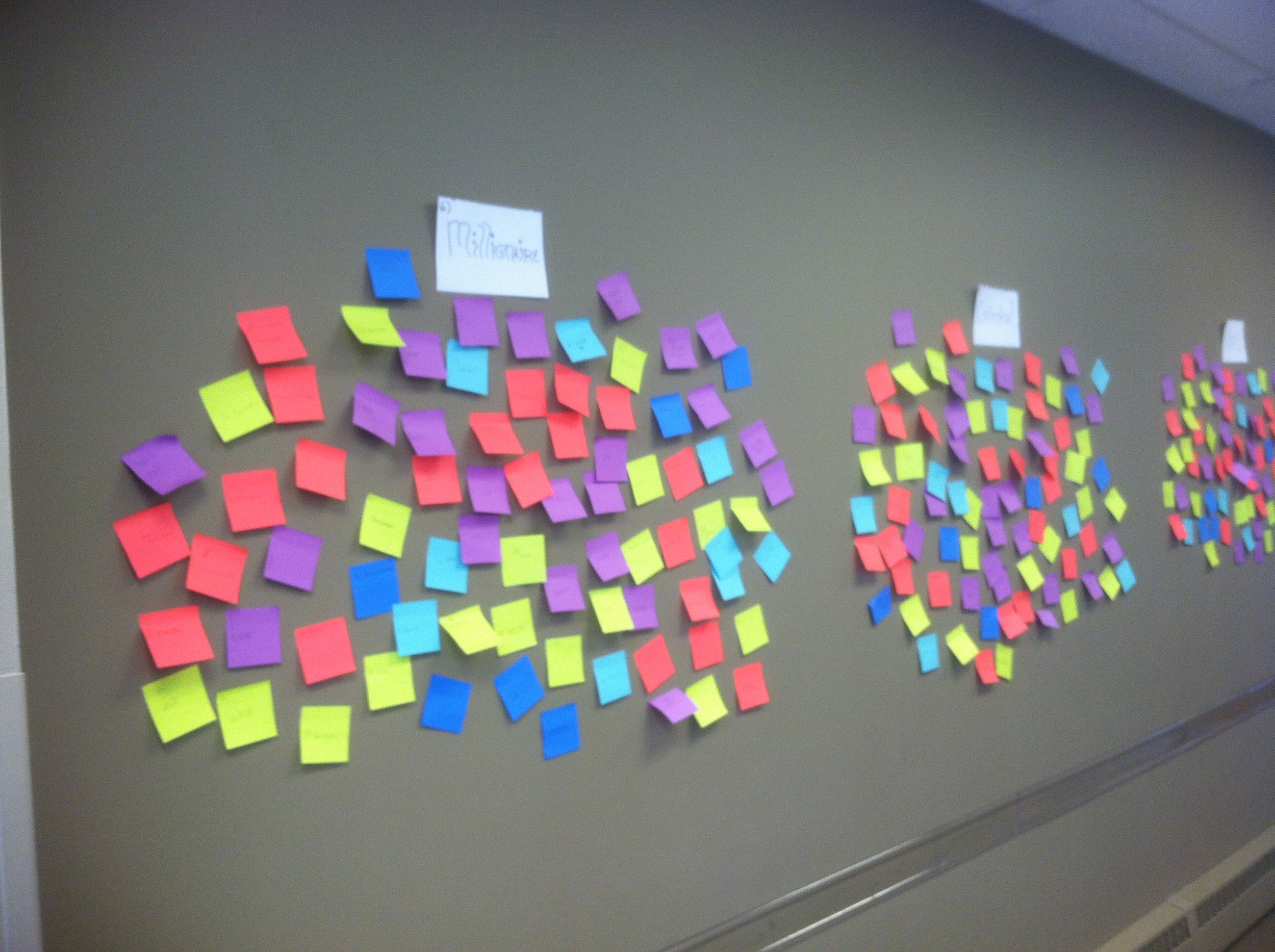Purposefully Uneasy
Our Multicultural Training Team, uses a lot of interactive experiences to start honest, open dialogues. The interactive experiences are typically very simple, but certainly cannot be confused for being easy. In fact, our interactive experiences intentionally make people uneasy!
Recently we led an interactive experience that involved participants revealing their first reaction to racially loaded identities (terrorist, poor, nerd, millionaire, supermodel, gang member, etc). As we spoke each identity out loud, participants had to write down the first racial or ethnic group that came to mind. All participants then posted their responses on the walls. For the most part, participants jump into this (and similar exercises) quite willingly, despite the uneasiness exercises like this cause. But occasionally, we have someone who just can't handle it. The last time we did this particular exercise, someone walked out. Afterwards, a woman who witnessed the walkout, suggested that next time "we should leave out anything that would create volatility in favor of doing things we can all agree on so that we focus more on creating community".
Our response was a kind but firm, "no." I would like to offer three reasons why our team has chosen to use simple but uneasy experiences, and why we will continue to, even at the risk of losing participants.
1. Building True Community. Most people probably wouldn't associate the word "chaos" with the word "community", but I have found that groups who don't enter into chaos with one another are only operating on a superficial level of association, not the deeper level of community. Superficiality does not serve as a solid foundation for honest, open dialogue on race, and the only way to move beyond superficiality is to introduce a little controlled chaos- something that rubs us the wrong way, that digs into our psyche, that make us uncomfortable, that forces us to be ourselves. We must be willing to go to that deeper place where race lives if we are serious about creating reconciliation. Sing-alongs are not the same as reconciliation. And so, we use interactive experiences that will create some tension, some uneasiness and also some community. (Read M Scott Peck's The Road Less Traveled or A Different Drum for more on building true community)
2. Creating a Shared Experience. The second reason our team is committed to using interactive experiences is because they lay a good foundation for beginning dialogue. One reason (of many) why its so hard to have conversations about race is because our experiences are so varied. Our racial identities were not formed in vacuums. They were informed by our families, socioeconomics, education, geography, generation and more. How do you bring all these variations into a room and attempt to have a meaningful dialogue? Our solution is to create a shared experience. This allows everyone to talk about the same experience, but to offer an individual perspective. A shared experience gives us all the same starting point, the same context, the same people involved... what differs are our reactions, our feelings, our thoughts. The shared experience creates a framework for the dialogue that helps people hear and understand one another.
3. Acknowledging What's Wrong. The basic premise of all of our trainings/classes is that race still matters. I am down for celebrating diversity, sharing one anthers food, learning about ethnic holidays, etc. Those are all good and beautiful actions. But to do that without acknowledging racial disparities, racial discrimination, racial stereotypes, racial bias, racial histories, and racial inequalities is to do a disservice to the very people I am attempting to celebrate. Our inter-activities give everyone permission to acknowledge and share the hard things about dealing with race in America. We don't pretend everything is golden, and we don't expect our participants to do so. Its healthy and honest to acknowledge what is still broken; how else can we galvanize to fix it?
So far from trying to appease our participants and make it easy to stay in the room, we would much rather challenge everyone and ourselves by building community from (a little) chaos, creating shared experiences, and giving everyone space to acknowledge what's wrong. Thats how we move forward together, truly together.


